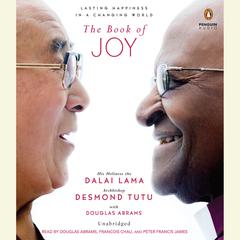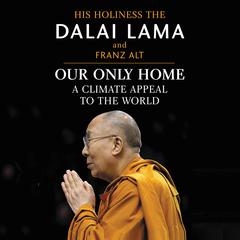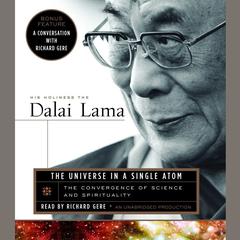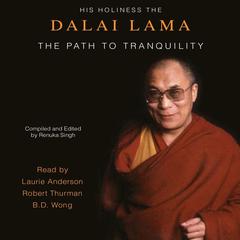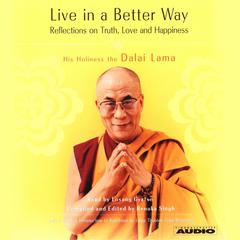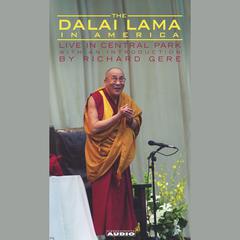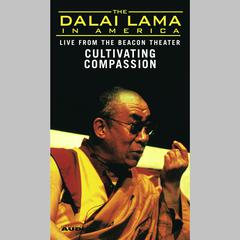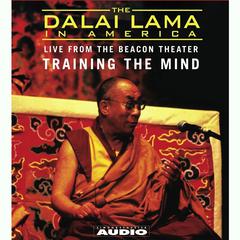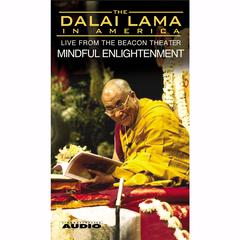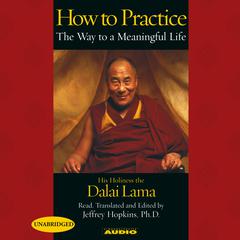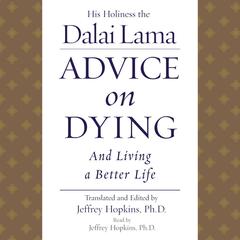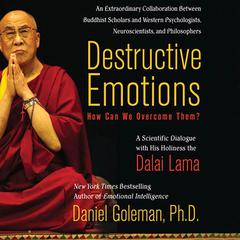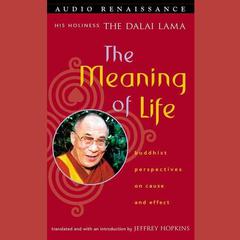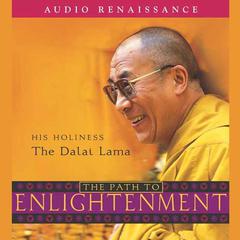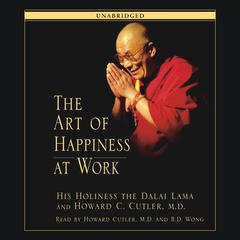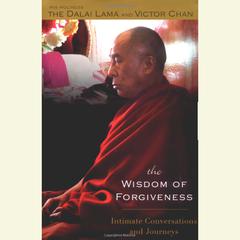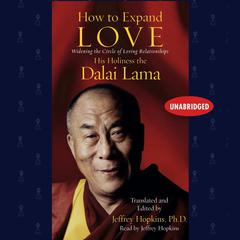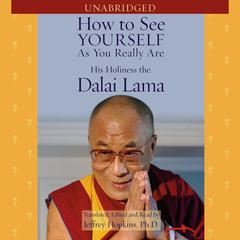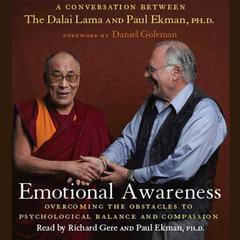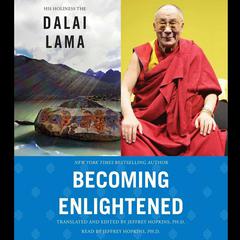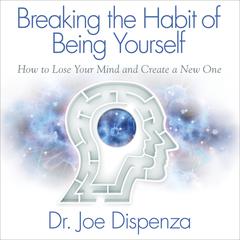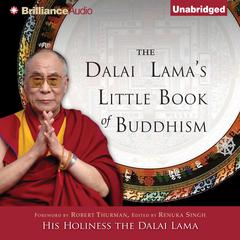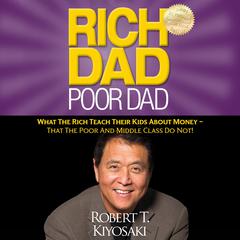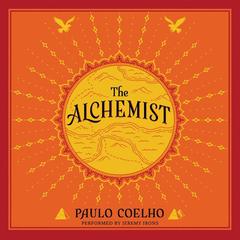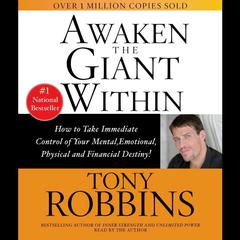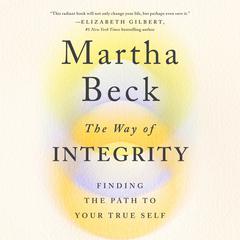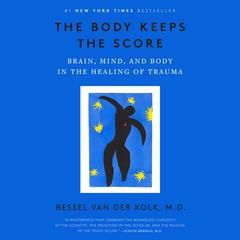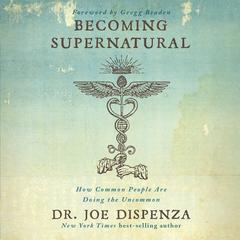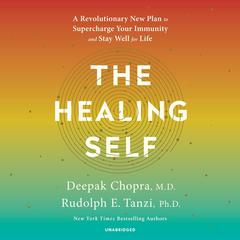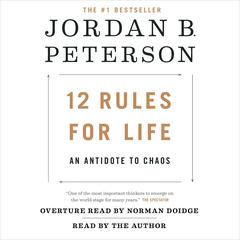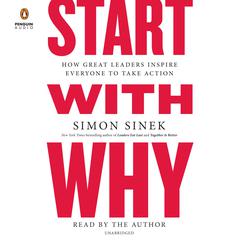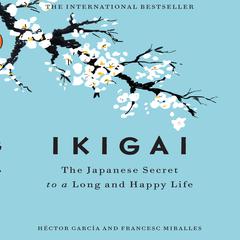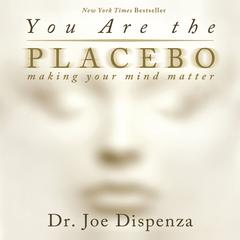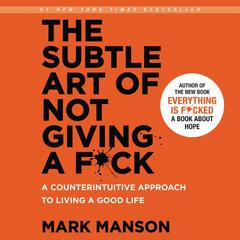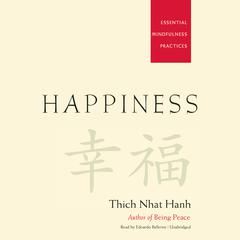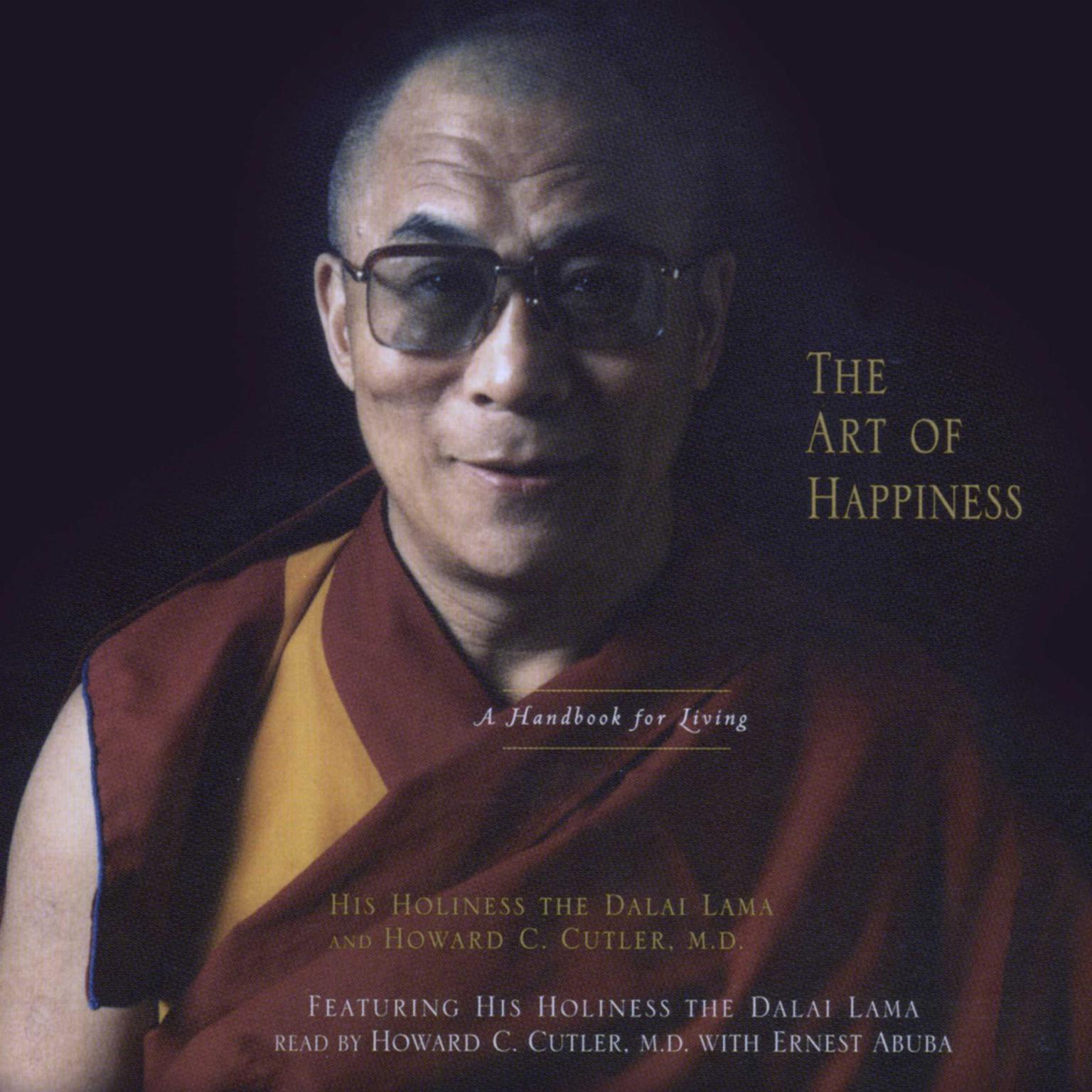 Play Audiobook Sample
Play Audiobook Sample
The Art Of Happiness (Abridged): A Handbook For Living Audiobook
 Play Audiobook Sample
Play Audiobook Sample
Quick Stats About this Audiobook
Total Audiobook Chapters:
Longest Chapter Length:
Shortest Chapter Length:
Average Chapter Length:
Audiobooks by this Author:
Publisher Description
Nearly every time you see him, he's laughing, or at least he's smiling. And he makes everyone else around him feel like smiling. He's the Dalai Lama, the spiritual and temporal leader of Tibet, the Nobel Prize winner, and increasingly popular speaker and statesman. Why is he so popular? Even after spending just a few minutes in his presence you can't help feeling just a little bit happier.
The Dalai Lama is probably one of the only people in the world who if you ask him if he's happy, even though he's suffered the loss of his country, will give you an unconditional "yes." What's more, he'll tell you that happiness is the purpose of life, and that "the very motion of our life is towards happiness." How to get there has always been the question. He's tried to answer it before, but he's never had the help of a psychiatrist to get the message across in a context we can easily understand.
Through meditations, stories and the meeting of Buddhism and psychology, the Dalai Lama shows us how to defeat day-to-day depression, anxiety, anger, jealousy, or just an ordinary bad mood. He discusses relationships, health, family, work, and spirituality to show us how to ride through life's obstacles on a deep abiding source of inner peace. Based on 2500 years of Buddhist meditations mixed with a healthy dose of common sense, The Art of Happiness is an audiobook that crosses the boundaries of all traditions to help listeners with the difficulties common to all human beings.
Download and start listening now!
"The narrative takes the form of a discussion between Cutler and the Dalai Lama on the nature of finding satisfaction in one's occupation. The content is great and provoked a lot of thought for myself; I also found that my attitude toward work was greatly improved on the days that I listened to this on my way there and back. A lot of their postulations came down to that: simply adjusting your individual expectations and attitude toward your work, as well as weighing your values and how they correspond with giving meaning and purpose to your work and life. Cutler has a nasally, rather dull voice; B.D. Wong affects a sort of Chinese accent, which is comical and gimmicky at first but ultimately is a performance that does give the essence of the Dalai Lama."
— Janelle (5 out of 5 stars)
Quotes
-
“An intriguing encounter between East and West.”
— Mail -
“There really is such a thing as an art of happiness, and this is one of the best how-to books a reader will ever find.”
— Booklist -
“An indispensable educational tool.”
— Audiofile -
“The Art of Happiness is read like an enchanting Indian tale by Howard Cutler and Ernest Abuba.”
— Library Journal
Awards
-
A New York Times bestseller
The Art Of Happiness Listener Reviews
-
" Some useful points about work though found some of it quite obvious. Interesting that the DL sees himself as 'doing nothing', you'll have to read it to find out why this is. "
— Lisa, 2/16/2014 -
" Here's the thing about this book that both I and my son Rob found irritating. It's too much of the co-author's perspective and not enough of the Dalai Lama. It's also incredibly surface level for a book whose subject should be a deeper examination of Tibetan Buddhism in the context of our work lives - our "right livelihood." I don't know. I found it fluffy and pop culturish, which the Dalai Lama is anything but. So...I can't say I'd really recommend it. "
— Beth, 2/14/2014 -
" This helped me to deal with a situation at work of being bullied by a co-worker. I also shared some of the principals with middle and high school students I work with, specifically the concept of working for the money vs. career aspirations/fame vs. a calling; that one must follow a calling to be truly happy and can combined with the other factors but not excluded. "
— Laurie, 12/29/2013 -
" Simple wisdom that makes a world of difference - at work and in daily life. I enjoyed the Dalai Lama's reminder of what it means to be human and how to nurture human nature into the workplace. "
— Crystal, 12/29/2013 -
" Good, though I felt like it isn't so much by the Dalai Lama as it is about his philosophies as they apply to a Western person's work life. Still, I feel like my work life has improved a bit. "
— Louise, 12/5/2013 -
" So far it is working! "
— Erin, 11/16/2013 -
" I was going through a bad patch at work and this really helped me clear my head and change my attitude. The Dalai Lama is smart and funny and wise and just a regular guy. I have never read any of his books before but after this I will definitely be reading others. "
— Stefanie, 11/16/2013 -
" within self, work for money vs self-confidence and to serve compassion love, work as calling and maybe small acts with great love, know thyself, arrogance ungrounded in reality, cause and effect as karma. "
— Don, 11/15/2013 -
" I really enjoyed reading the Dalai Lama's perspective. However, I feel that he just has no concept of what it is like to live and work in the Western world. He never has, of course, so it is hard for me to find what he says helpful in any practical sort of way. "
— Destiny, 11/7/2013 -
" Was looking for meaning to my work and found this book helpful. But it didn't contain much of Dalai Lama's or Buddhism teachings. "
— Hsin, 10/16/2013 -
" Anything the Dalai Lama says is enriching and engaging. The skeptical angle from the author, however, was a bit frustrating over the course of the book with his commentary, and I rather wanted to leave his angle completely out and just hear the sweet voice of the Dalai Lama. "
— Connie, 4/30/2013 -
" I am reading a bit of this during breaks--especially on my challenging days. "
— Jyllian, 12/5/2012 -
" Some decent insights, but I guess I mainly don't like the author's conversational tone for the book. Plus, all the ideas are much more powerful as a general practice than when just focusing in on your work. "
— Hedwig, 5/4/2012 -
" not the insight I was hoping for, but perhaps that is because I have already made the decisions that lead me to live my calling, and help others in the process. So, read if you like, but don't expect anything groundreaking. "
— Hansell, 2/7/2012 -
" This turned out to be a good book to listen to on my road trip. It surprised me at how much of the information was common sense that had never crossed my mind. So even though I think outside the box my common sense must have slipped back in. "
— Virginia, 1/10/2012 -
" The Dalai Lama XIV ROCKS!!!! Fabulous insights from one of the brightest souls on the planet "
— Roger, 8/31/2004 -
" simply enjoy and think about it . . . "
— Oh, 5/10/2004 -
" Ok. Very disappointing in terms of bringing true Buddhist teachings to bear on your work life. Just common sense really. "
— Tracey, 12/4/2002 -
" I found the information pretty typical and common. I did not feel it had a lot of new knowledge on this topic. "
— Emily, 3/10/2002
About the Authors
His Holiness the Dalai Lama, Tenzin Gyatso, was born in 1935 to a peasant family in northeastern Tibet and was recognized at the age of two as the reincarnation of his predecessor. As the world’s foremost Buddhist leader, he travels extensively, speaking eloquently in favor of ecumenical understanding, kindness and compassion, respect for the environment, and world peace. He is the author of over seventy books and has received a number of awards, honorary doctorates, and other accolades for his work.
Howard C. Cutler, MD, is a psychiatrist, bestselling author, and public speaker. He is coauthor with the Dalai Lama of the critically acclaimed Art of Happiness series; international bestsellers that have been translated into fifty languages. As a leading expert on the science of human happiness, Dr. Cutler offers courses and workshops on the art of happiness throughout the United States and internationally.
About Howard C. Cutler
His Holiness the Dalai Lama, Tenzin Gyatso, was born in 1935 to a peasant family in northeastern Tibet and was recognized at the age of two as the reincarnation of his predecessor. As the world’s foremost Buddhist leader, he travels extensively, speaking eloquently in favor of ecumenical understanding, kindness and compassion, respect for the environment, and world peace. He is the author of over seventy books and has received a number of awards, honorary doctorates, and other accolades for his work.




